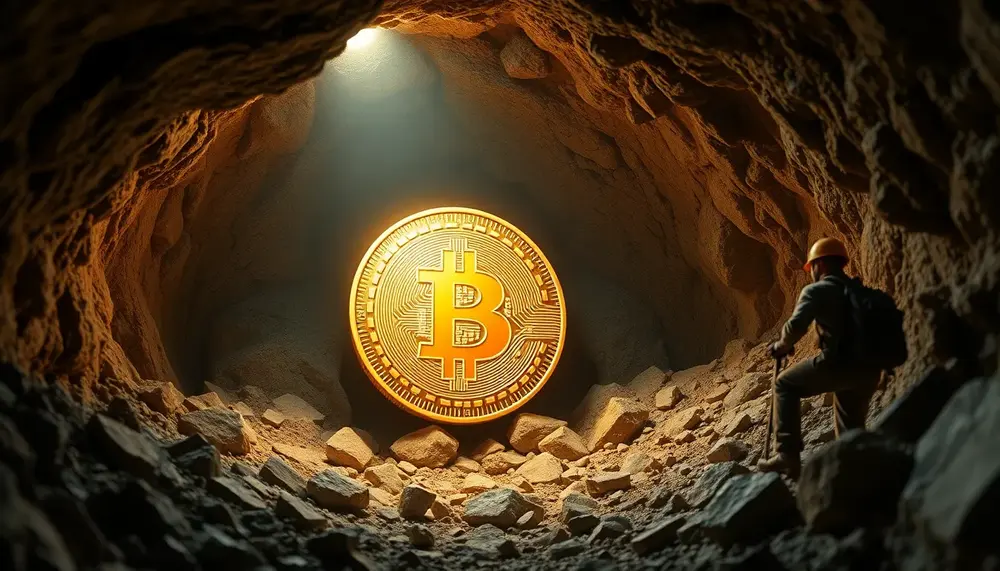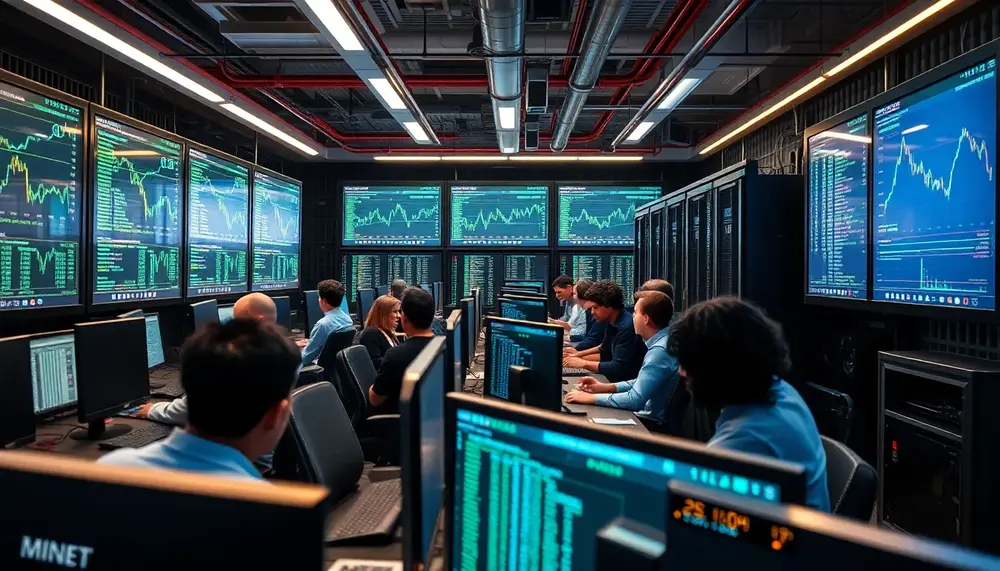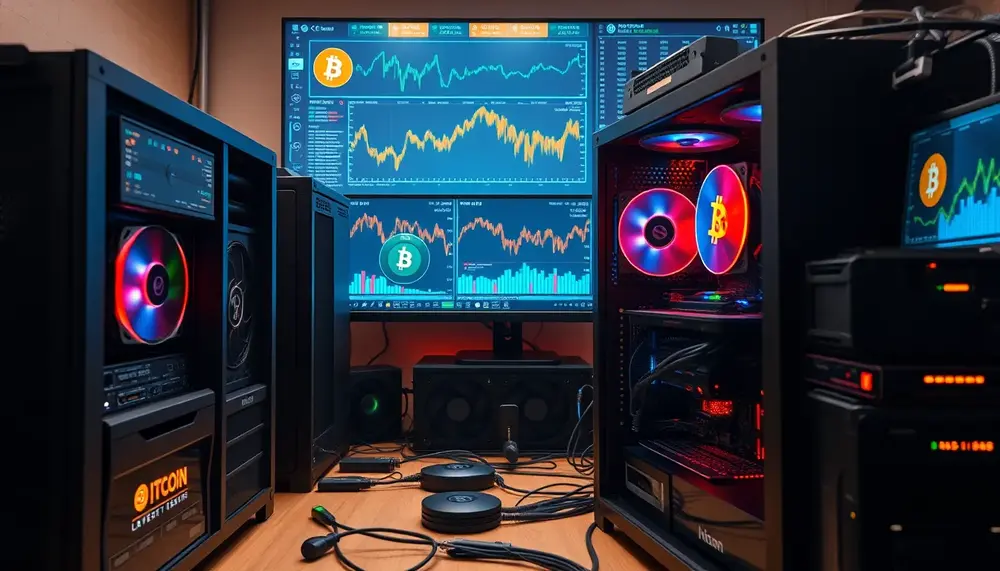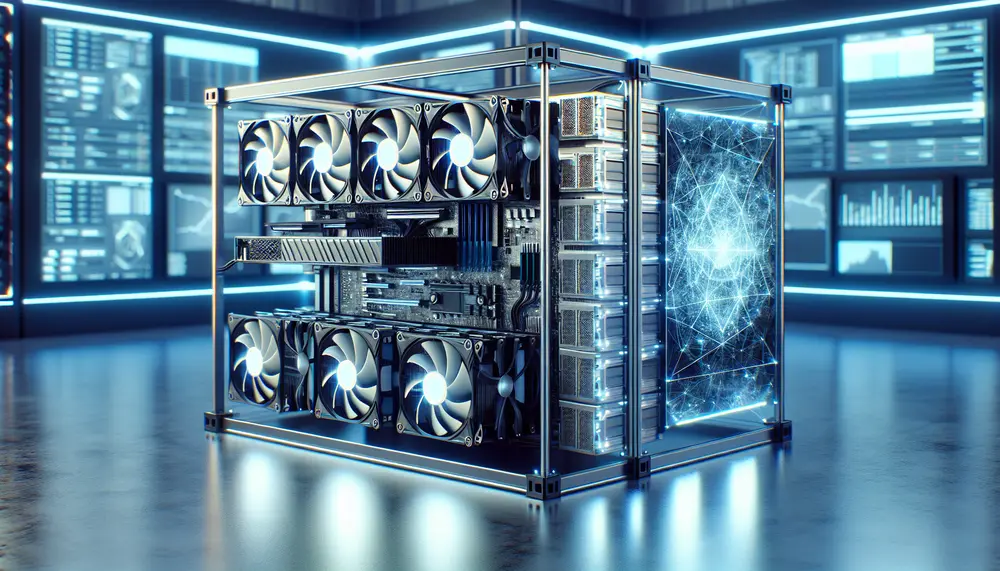Transaction Processing
Transaction Processing
Understanding Transaction Processing in Bitcoin Mining
In the realm of Bitcoin mining, one term you will often encounter is "Transaction Processing". In order to fully comprehend its role in Bitcoin mining, it's necessary to delve into the mechanics of what Transaction Processing is.
Defining Transaction Processing
Transaction Processing is a crucial cornerstone in Bitcoin mining. It involves verifying and adding Bitcoin transactions to the public ledger, known as the Blockchain. This process ensures that every Bitcoin transaction that occurs worldwide is transparent and safe from fraud.
The Function of Transaction Processing in Bitcoin Mining
In the sphere of Bitcoin Mining, the term transaction processing refers to the task that miners undertake, to validate, package, and add transactions to the Bitcoin blockchain. When a Bitcoin user sends a BTC transaction, the activities are broadcast to the Bitcoin network. Miners then collate these transactions into blocks and try to solve complicated mathematical problems. Once a miner successfully solves the problem, the new block is added to the blockchain, indicating that these transactions are confirmed and legitimate. This process is called transaction processing.
The Importance of Transaction Processing in Bitcoin Mining
The keystone of Transaction Processing in Bitcoin mining cannot be overstated. It sorts out the problem of “double-spending,” a potential flaw in a digital cash scheme, where one could quickly duplicate or forge digital files. The transaction processing is carried out by miners in the Bitcoin network, making it a system that incentivizes miners to secure the network and validate transactions.
In Summary
Transaction Processing in Bitcoin Mining plays a central role in making Bitcoin an honest, open, and reliable digital currency. It is a complex process handled by miners for securing the Bitcoin network and maintaining accountability for every Bitcoin transaction happening worldwide.
Blog Posts with the term: Transaction Processing

Bitcoin's mining reward system, which reduces rewards through halving events approximately every four years to maintain scarcity and influence market dynamics, plays a crucial role in shaping Bitcoin's value and technological evolution. These halvings impact supply by capping it at...

XRP, created by Ripple Labs in 2012, is designed for fast and cost-effective cross-border transactions using a semi-centralized ledger maintained by independent validator nodes. Unlike Bitcoin and Ethereum, XRP cannot be mined as all its tokens were pre-mined at inception;...

The article explains the importance of understanding Monero mining pools and their hashrate distribution, highlighting how these factors affect network security and decentralization. It also provides a guide to selecting top Monero mining pools in 2024 based on criteria such...

A mining pool wallet acts as a digital piggy bank for storing and managing cryptocurrency earnings, providing security features like encryption and two-factor authentication to protect assets. When choosing such a wallet, consider factors like user accessibility, transaction fees, costs,...

TRX USDT mining involves using computational power to validate transactions on the Tron network, earning rewards in TRX and USDT. This guide covers everything from understanding these cryptocurrencies to setting up your mining operation, highlighting benefits such as profitability, diversification,...

XRP, created by Ripple Labs in 2012, is a pre-mined digital asset designed for fast and cost-effective cross-border payments using the Ripple Protocol Consensus Algorithm (RPCA) instead of traditional mining. Unlike Bitcoin's Proof of Work system, XRP relies on validators...

The article discusses the impact of quantum computing on Bitcoin mining. It explains the principles of both quantum computing and Bitcoin mining separately, and then explores how quantum computing can enhance the efficiency and speed of Bitcoin mining while also...

Solana is a high-performance blockchain utilizing Proof-of-Stake (PoS) and Proof of History (PoH) for efficient, scalable transaction processing. Staking on Solana involves locking SOL tokens to support network security in exchange for rewards, requiring robust hardware like multi-core CPUs, ample...

Solana mining, or staking, involves locking up SOL tokens to support the network using a Proof of Stake (PoS) mechanism rather than power-intensive hardware. Efficient Solana mining requires key components like powerful CPUs, adequate RAM (at least 64GB), fast SSDs,...

Litecoin merge mining allows miners to simultaneously mine Litecoin (LTC) and Dogecoin (DOGE) using the same hardware setup, leveraging Auxiliary Proof of Work (AuxPoW) to enhance profitability and network security. This method increases earnings without additional equipment investment, making it...

Mining pool transaction fees are crucial in the Bitcoin mining ecosystem, affecting miners' profitability based on various reward systems like PPS, PPLNS, FPPS, and Proportional; understanding these structures helps miners align their strategies with fee distribution to maximize earnings....

Kaspa is a decentralized cryptocurrency that uses the KHeavyHash algorithm and features a blockDAG structure for faster transactions and scalability, making it attractive for mining. Investing in Kaspa mining involves selecting efficient hardware and configuring your rig to maximize efficiency...

Crypto mining is the process of using powerful computers to solve complex puzzles, validating transactions on a blockchain and ensuring security and decentralization; it involves competition among miners who are rewarded with new cryptocurrency coins for their efforts. This essential...

Kaspa mining, utilizing the BlockDAG protocol and proof-of-work consensus with kHeavyHash algorithm, offers a decentralized approach to cryptocurrency mining that is both energy-efficient and resistant to ASIC centralization. Miners need appropriate hardware like high-quality GPUs or ASICs, stable internet, cooling...

